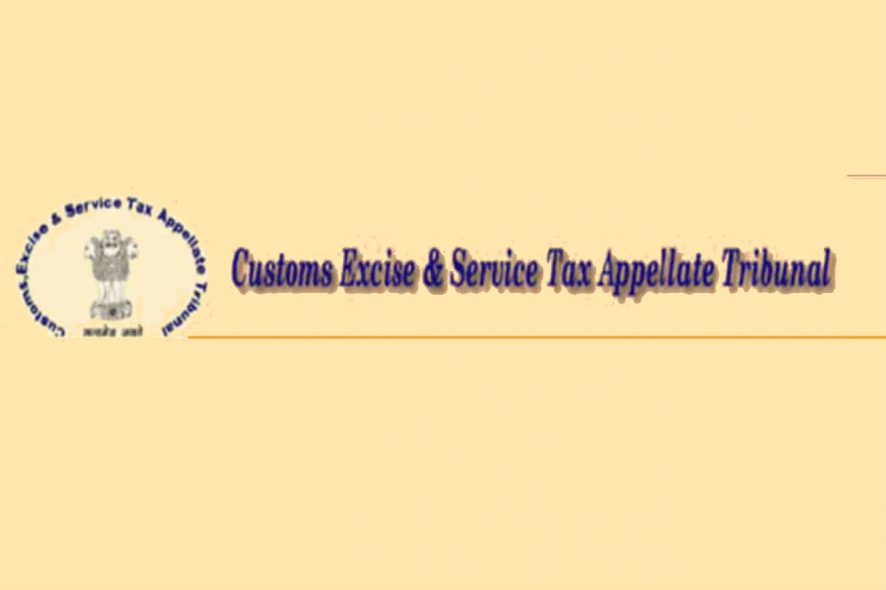Customs, Excise and Services Tax Appellate Tribunal (CESTAT): The Coram of Dilip Gupta (President) and P. Anjani Kumar (Technical Member), partly allowed a petition in which the issue was as to whether the credit of Excise Duty/Additional Customs Duty (CVD) on inputs and capital goods and credit of Service Tax paid on input services which have been used for the construction of Mall, further used/usable for providing taxable output service was admissible to the appellants.
The appellant was engaged in the business of setting up and managing shopping centres, family entertainment centres, multiplexes, etc. popularly known as “Malls”. The appellant registered itself with the Service Tax Department for Renting of Immovable Property Service, Maintenance and Repair Services, Advertising Services, GTA Services, Management Consultancy Services, etc., intended to be provided by them. The appellant availed the credit on inputs like cement, steel, angles, channels etc., and input services like construction services, consultancy, architect and allied services etc., used by them in the construction of “Malls”. After an audit of appellants records the Department opined that the appellant was not eligible to avail such credit. Show Cause Notice was issued wherein recovery of CENVAT credit availed and utilized was confirmed under Rule 14 of CENVAT Credit Rules 2004 along with applicable interest and penalty.
Senior Counsel assisted by Shri Navin Khandelwal and Shir Piyush Parashar appearing on behalf of the appellant submitted that definition of “Input” and “Input Service” had undergone a change with effect from 01-04-2011 by Notification dated 01-03-2011 and it is evident that goods used in the construction of a building or a civil structure are excluded from 01-04-2011 but were included to be eligible for CENVAT credit prior to 01-04-2011; therefore, the credit availed by the appellant prior to 01-04-2011 has rightfully been availed.
Authorized Representative appearing for the Department submits that in terms of Rule 2 (1) of the Credit Rules, CENVAT credit is restricted to such services which are used by the provider of taxable services.
The Tribunal on the argument of Revenue regarding absence of nexus between input services and output services relied on the decision of DLF Promenande Ltd. v. Commr. ST, Service Tax Appeal No. 54213 of 2014 decided on 29-01-2020 and held that issue of nexus between input material/services and the output services has been settled by the Tribunal in favour of the appellant.
The Tribunal however noted that facts of the instant case were slightly different as in the present case the appellant could not complete the construction of the mall. However, this fact should not in any way affect the admissibility of credit to the appellant as the admissibility of the credit availed prior to 01-04-2011, has been settled in principle. It was held that the appellant had correctly availed the credit on inputs and input services, the duty and tax on which has been paid by the appellant.
In respect to the issues of time bar and availability of credit to the appellant it was submitted that the appellant had been regularly filing the ST-3 Returns and as such nothing was suppressed by it so as to invoke of the extended period. Authorized Representative submitted that there was no mention of CENVAT credit in the Returns filed till September 2009 and an opening balance has been shown in the Returns filed for the period October 2009 to March 2010. The Tribunal found that Credit Rules imposed certain conditions for allowing credit in terms of Rules 4 & 9 and cast certain obligations upon the assessee in terms of Rule 6. The quantum of admissibility of credit depends on satisfying the conditions imposed therein and the discharge of obligations. In such circumstances it is not possible to quantify the admissible credit at this juncture. For this limited purpose, the issue needs to be remanded to the Adjudicating Authority.
The Tribunal partly allowed the appeal remanding the issue to the adjudicating authority for quantifying the credit admissible.[Indore Treasure Market City (P) Ltd. v. Commr. CGST & CE, Service Tax Appeal No. 50248 of 2021, decided on 01-09-2021]
Suchita Shukla, Editorial Assistant has reported this brief.







